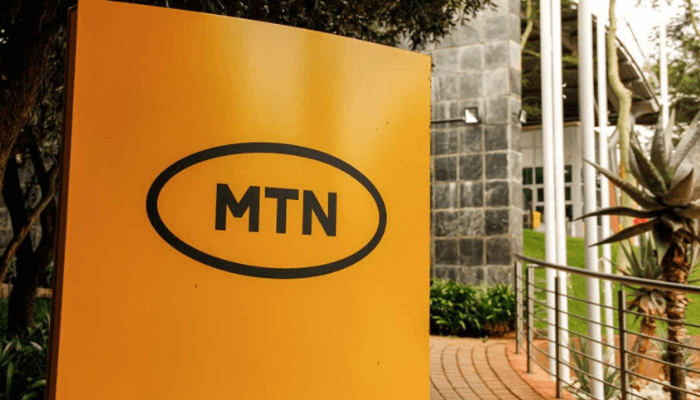MTN Nigeria has recorded a profit after tax (PAT) of N750.2 billion for the nine months ending September 30, 2025, marking one of the strongest corporate turnarounds in the history of the Nigerian telecommunications industry.
The result represents a rebound of 245.7 per cent from the loss of N514.9 billion recorded in the same period last year, driven by strong data growth, fintech expansion and improved macroeconomic stability.
The company's performance was driven by a strong naira, reduction in inflation and disciplined cost management, which doubled operating margins.
Total services revenue increased 57.5 per cent year-on-year to N3.7 trillion, while EBITDA more than doubled to N1.9 trillion, with margins expanding 15.1 percentage points to 51.4 per cent.
“We are pleased to report that MTN Nigeria has restored its positive retained earnings and shareholders' equity position. This milestone reflects strong operating momentum and disciplined execution, supported by a more favorable macroeconomic environment and prudent financial management,” said Carl Toriola, Chief Executive Officer of MTN Nigeria.
The resurgence of telcos coincided with a period of relative macroeconomic recovery in Nigeria. The naira rose from N1,535/$ in December 2024 to N1,475/$ by the end of September 2025, while headline inflation slowed to 18 percent from 34.8 percent, prompting the Central Bank of Nigeria to cut the monetary policy rate to 27 percent.
These changes improved foreign exchange liquidity, reduced financing costs and strengthened investor sentiment, creating a more favorable environment for network expansion and service delivery.
Data, fintech and broadband fuel growth
MTN Nigeria's data business remained its major growth engine. Data revenue increased by 73.2 per cent year-on-year to N1.98 trillion due to increased smartphone penetration (now 65.1 per cent), expanded 4G capacity and 36.3 per cent growth in data traffic. Average data usage per subscriber rose to 13.2GB per month, while the company's home broadband user base grew to 4 million, up by 281,000 in Q3 alone.
Voice revenue also increased by 41.9 per cent to N1.35 trillion, reflecting both subscriber growth and new pricing strategies.
On the digital and fintech front, fintech revenues grew by 72.5 per cent to N131.6 billion, with active MoMo wallets expanding to 2.9 million. MTN said customer deposits increased by 80.5 per cent compared to December 2024, while its agent and merchant networks expanded by 73.6 and 42.6 per cent respectively, underscoring its drive to deepen financial inclusion.
“Fintech remains a critical growth area that drives inclusion and long-term value,” Toriola said. He said recent initiatives have begun to rebuild momentum in MTN’s mobile money ecosystem.
Also read: MTN Nigeria updates investors on spectrum lease agreements
Balance sheet strength restored
The telecom giant also returned to financial health after several quarters of FX-induced stress. Retained earnings from N607.5 billion losses in December 2024 turned to positive N142.7 billion, while shareholders' equity improved to N293.1 billion, reversing last year's negative position.
Free cash flow increased by 38.5 per cent to N742.6 billion, reflecting strong underlying cash generation despite a record N757.4 billion in capital expenditure, an increase of 248 per cent as the company accelerated network and fiber investments. MTN expects capital expenditure intensity to reduce in the fourth quarter, which will be consistent with its full-year guidance and support strong free cash flow.
The company also declared an interim dividend of N5.00 per share, marking a return to dividend payments after a tumultuous 2024.
Accelerated Investment and Strategic Partnership
MTN's capital investment was directed towards capacity expansion, fiber rollout and a new data center development. The company also reported progress on the 110 kilometer long Enugu-Onitsha Expressway, which is now 50 per cent completed under the Federal Government's Road Infrastructure Tax Credit (RITC) scheme. In July, it secured an additional N23 billion tax credit to offset future tax liabilities starting in 2026.
To strengthen network efficiency, MTN entered into a spectrum lease agreement with T2 Mobile (formerly 9Mobile) covering the 20 MHz frequency band for three years. The move, part of a broader infrastructure-sharing initiative, is expected to support capacity expansion and improvement in service quality across the country.
Enterprise and digital transformation
MTN's enterprise business recorded growth of 28.6 per cent, supported by increased adoption of fixed connectivity and cloud services. The launch of MTN Cloud powered by the new Dabengwa Tier III data center positions the operator as a leading digital transformation partner for Nigerian businesses.
The company's digital services segment also maintained momentum and grew 41.9 percent despite temporary platform optimization, driving performance with richer content offerings and higher user engagement.
Looking ahead, MTN Nigeria is expected to maintain strong momentum in the final quarter of the year.
The company reaffirmed its 2025 full-year guidance for service revenue growth of at least 50 percent and EBITDA margin in the low 50 percent range.
For the medium term (2026 onwards), MTN forecasts service revenue growth to average at least 20 per cent and EBITDA margins between 53 per cent and 55 per cent, assuming inflation below 20 per cent and exchange rates in the N1,500 to N1,800/$ range.
“We are confident in the flexibility of our business model and our ability to manage emerging risks. Our focus remains on disciplined execution, cost efficiency and creating long-term value for all stakeholders,” Toriola said.











